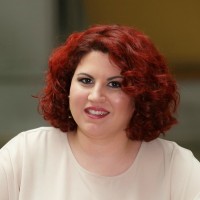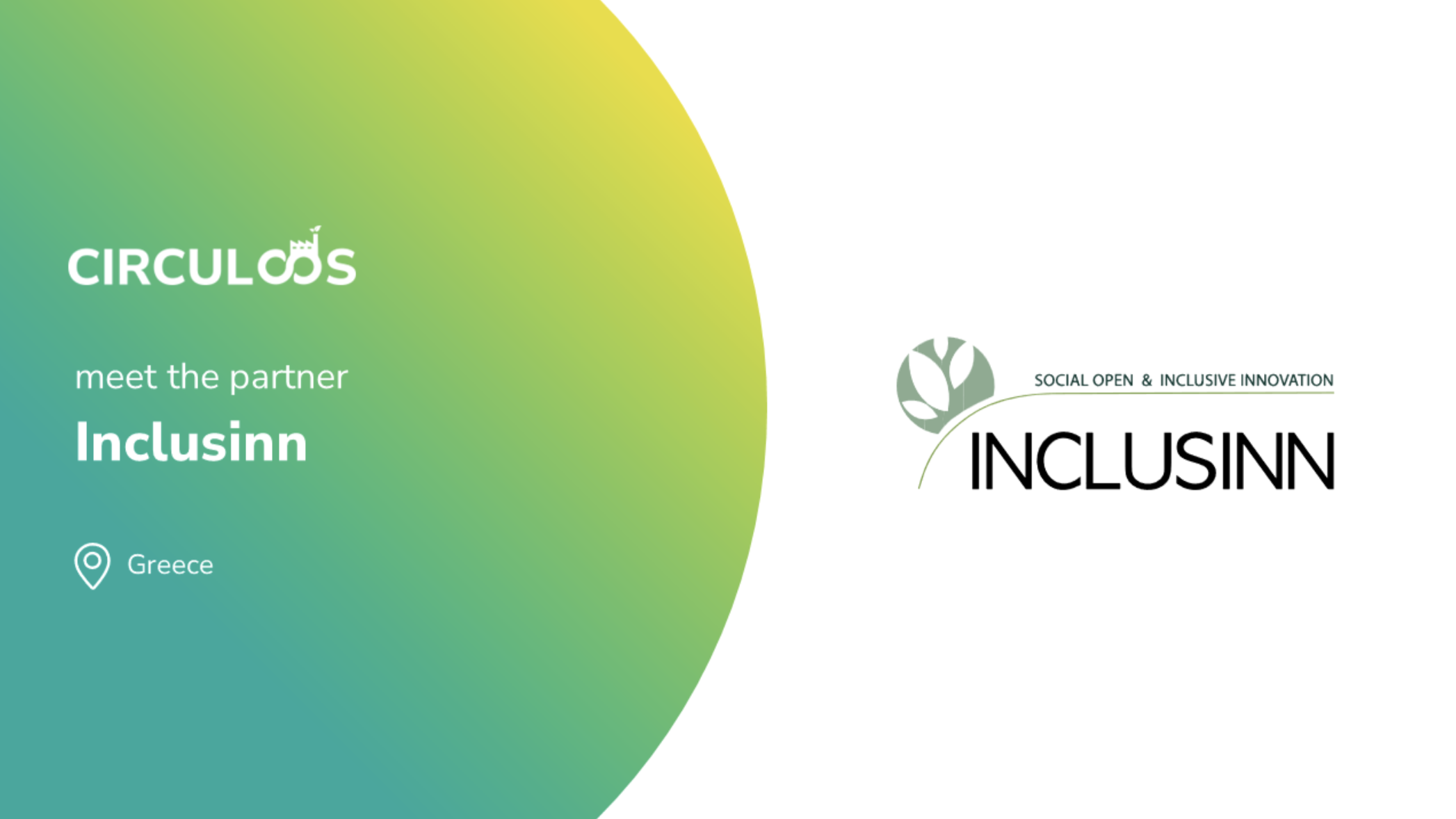Today, we’re speaking with Christina Sianidou from INCLUSINN, to learn more about their work managing the project’s open calls and supporting small and medium-sized manufacturers across Europe as they transition toward circular solutions.
 INCLUSINN leads the coordination and implementation of the open calls within the CIRCULOOS project. These calls are a key mechanism to engage external partners and bring innovative, real-world applications into the project—especially from SMEs. In this interview, Christina walks us through how the process works, the collaboration with F6S, and how INCLUSINN is ensuring transparency, inclusivity, and long-term impact in the circular economy space.
INCLUSINN leads the coordination and implementation of the open calls within the CIRCULOOS project. These calls are a key mechanism to engage external partners and bring innovative, real-world applications into the project—especially from SMEs. In this interview, Christina walks us through how the process works, the collaboration with F6S, and how INCLUSINN is ensuring transparency, inclusivity, and long-term impact in the circular economy space.
So let’s get started!
What is your role in the CIRCULOOS project?
INCLUSINN plays a central role in managing the open calls within the CIRCULOOS project. These calls are how we bring new partners—especially small and medium manufacturers—into the project to test and implement circular solutions. We work closely with F6S to design, launch, and manage the entire process: from applications and matchmaking to evaluation and follow-up. Our job is to make sure the calls are inclusive, transparent, and impactful for the broader circular economy ecosystem.
How important do you consider the CIRCULOOS open calls for the deployment of the project?
They’re absolutely essential. The open calls are the bridge between our research and real-world impact. Through them, we engage more than 16 new demonstrators across Europe—companies that will apply, test, and improve the CIRCULOOS technologies in real-life settings. This gives the project a broader reach and ensures it meets the needs of the actual manufacturing community, not just the consortium partners.
What would you highlight about the future open call management and your collaboration with F6S?
Working with F6S presents a strong advantage – their experience in running large-scale funding and acceleration programmes helps us run a smooth open call process. We’re excited about how accessible we’re making it: there are info days, matchmaking support available for applicants, and a 24/7 Q&A forum. We’re focusing on being helpful and transparent, so applicants feel confident and supported throughout the process.
Which are the challenges that you foresee throughout the project?
A key challenge is making sure we reach the right organisations—especially SMEs that may not be familiar with circular economy concepts or EU funding mechanisms. We need to make the application process approachable and show the real value these companies can gain by participating. Another challenge is ensuring a diverse and balanced group of projects across sectors and regions. We’re tackling these with targeted outreach, matchmaking support, and clear communication.
Which is your future vision of the project?
We’d love to see CIRCULOOS become a reference point for circular manufacturing—where companies come not only to test ideas but to access long-term tools, communities, and business models. With the right support and visibility, we believe CIRCULOOS can keep growing well beyond its initial funding period and create a lasting impact across the European manufacturing landscape.
How will the Circular Economy change the manufacturing sector?
It’s a massive shift—from “take, make, waste” to “reuse, redesign, and regenerate.” In manufacturing, this means products that are easier to repair, recycle, and remanufacture—and smarter ways of working together along the supply chain. The circular economy won’t just help the planet; it will also make businesses more resilient and future-ready. And CIRCULOOS is helping pave the way!


